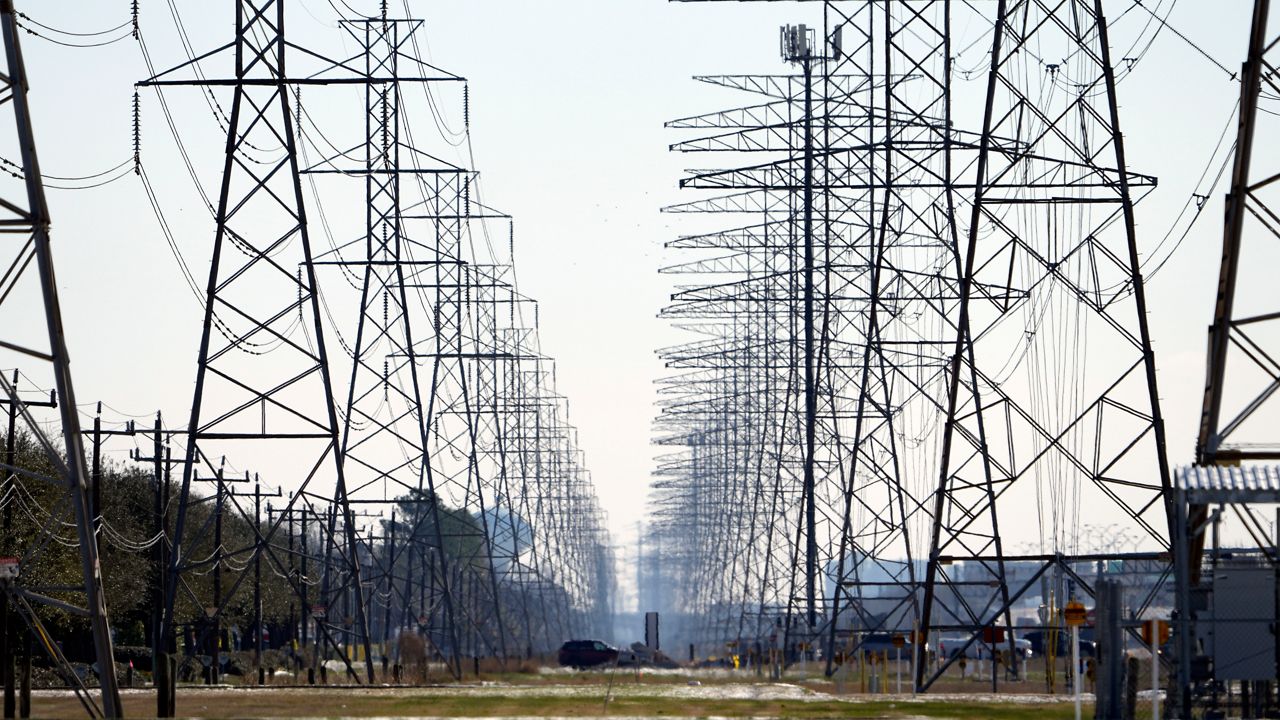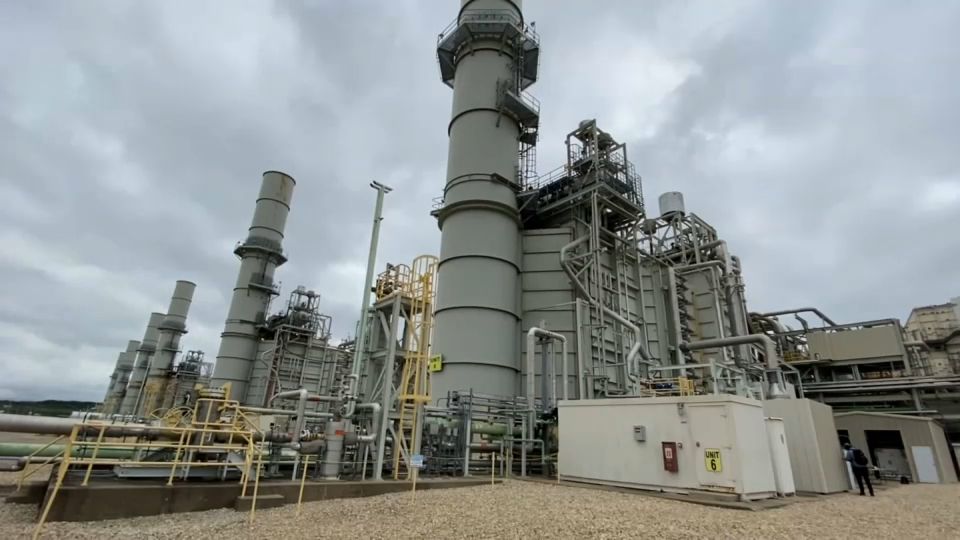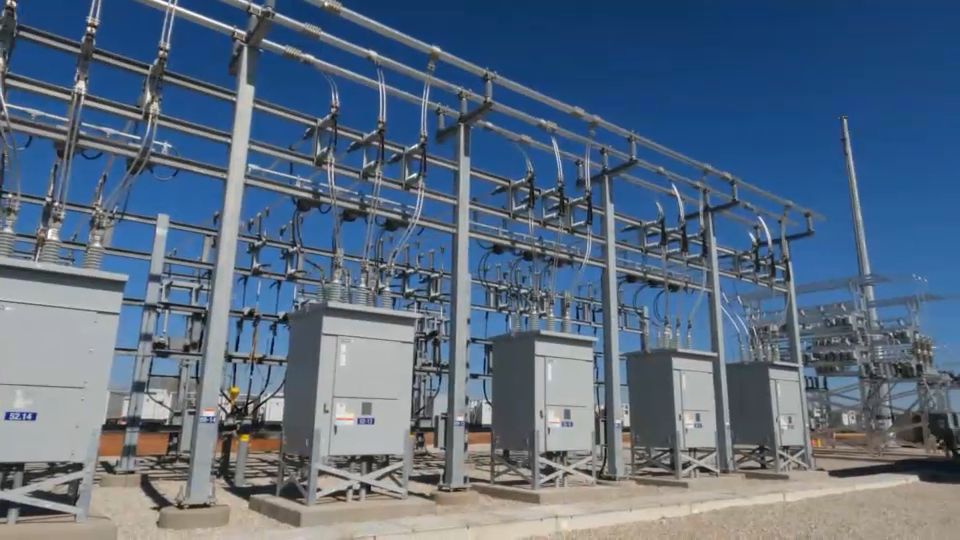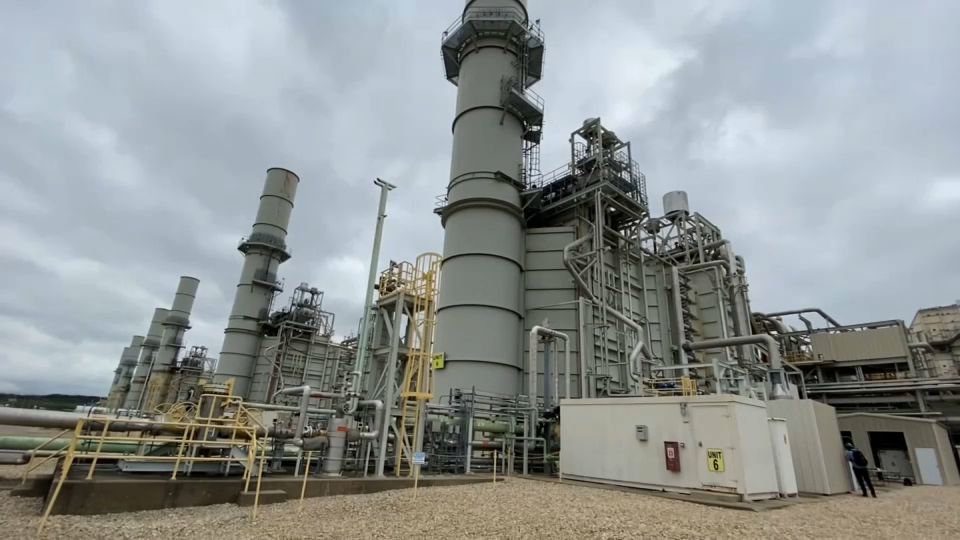AUSTIN, Texas – Dangerous. Excessive. Brutal. Those are just some of the alarming words being used this week by Texas meteorologists to describe the extreme heat across the state.
“Nothing we can do. Texas is Texas. I think we're ready for it,” said Frisco resident Ashley Garcia.
Right now, the Texas energy grid is keeping up with demand. But despite the increased strain on the grid, operators say they're confident it can withstand the summer heat.
In Austin, lawmakers set out to make the grid more resilient against extreme weather during the legislative session. Calls to “fix the grid” grew louder after hundreds of Texans died in February 2021. The power grid failed under freezing conditions.
In an effort to answer the call, Gov. Greg Abbott recently signed legislation that would incentivize companies to build new natural gas plants with 3% loans and completion bonuses. Voters will decide whether the state should fund this initiative when they cast a ballot in November.
“I am very eager to see the results of a statewide election to enable loans and grants for continuing fossil fuel generation in the state of Texas,” said Beth Garza, a senior fellow at The R Street Institute. “We'll see if that really materializes. Because at this point, it's just a good idea. Nothing happens until a statewide election later this fall.”
But gas-powered plants failed during the 2021 freeze. Texas had the supply, but it couldn’t perform. Yet the Legislature did not provide incentives for existing plants to weatherize.
On top of weatherization, Garza said looking at how to reduce demand would have been helpful. Lawmakers could have provided incentives to consumers to conserve energy or improve their homes by installing better windows and insulation.
“I absolutely think that that was a major miss during this legislative session,” Garza said.
Even if voters do decide to fund the loan program when they cast a ballot, power plants take years to build, which means it’ll be a long time before a new one would be contributing to the grid’s capacity.
And so this idea that the Legislature can take action, and then we can see the specific results of that action in six months, is not a realistic way to look at this.“Power plants don't emerge fully formed from waving a magic wand,” Garza said. “They are big pieces of machinery that you have to find a location for, and you have to find a good location that has fuel and access to transmission and water, depending on your power plant. And generally, that development period can be many years to find a location. Once you have the location and the approval to interconnect, it’s generally at least a year, if not two or three, to actually build something. And so this idea that the Legislature can take action, and then we can see the specific results of that action in six months, is not a realistic way to look at this.”
Garza added that this law might actually delay new power plants from coming online by a few months, until interested builders know the results of the ballot measure.
“If I'm a generation developer, and I was really interested, and I see some deficits are in ERCOT, and I think I have my sights on a good piece of land… It's got good access to water, good access to fuel, access to equipment, I start thinking, ‘OK, I'm going to pull the trigger, and become public, and announce my interconnection at this location.’ Well, this last six months, you've had the session talking about, ‘Well, we're going to get people low-interest loans.’ And why would I go find my own private capital? I think I would, if it were my money or if that were my job, I think I would shift and wait and see what the rules are for getting access to this 'government money,' because it's going to be at lower cost… Or, it may attract new participants into the mix that didn't have access to their own private capital. It can go both ways, and I think that's important to recognize," Garza said.
Another bill that Gov. Abbott signed creates an “allowance” for generators to build transmission lines that will connect resources to the grid. But if the to-be-determined allowance doesn’t cover the full cost, the generator will have to pick up the remaining balance.
“It was really intentionally set up to be discriminatory against renewables,” said Michael Jewell, a managing attorney at Jewell & Associates. “Those are the resources that are building now, those are the resources that are connecting now, those are the resources that will be subjected to a new paradigm for cost allocation.”
New dispatchable generation resources will be luckier than renewables, Jewell added.
“We can expect a lot of those new plants will be built where existing plants are,” he said. “So those kinds of upgrades, that new interconnection, will not be necessary. They'll take advantage of what's been done in the past. There will be new dispatchable generation that will have to be built–what we call a greenfield–where it's a new area that's being developed, and they will have the same cost allocation issues as renewables. But I think that's where the development of the default cost allocation is going to be important.”
Jewell, who’s worked in the energy space for decades, said this extra cost could have an unintended consequence of delaying interconnection. Before this new law was signed, consumers, not generators, paid for the transmission lines.
“So if you think about all the dispatchable generators that have been interconnected to the grid over time, they have had their costs uplifted to the market,” Jewell said. “And the reason that you uplift those costs in the market is because everybody–you, me, every other customer who is consuming electricity in ERCOT–benefits from the addition of new generation resources.”
Beyond the bill to provide an “allowance” to build transmission lines, Jewell said the renewable industry took a “significant hit.”
“There was a firming obligation that will essentially say that you've got to have contracts with other generators so that you've got your normal amount of capacity available by season, if called upon. Regardless of whether ERCOT needs it, you're going to have to pay for it and have it available. That passed,” he said. “It's not going to be immediately impacting the industry, but it's a future impact that's coming down the pipe.”
Jewell said the economic development bill will also provide tax abatements for dispatchable generators that are not available for renewables or energy storage.
“There's a number of hits that were taken. Fortunately, there were no killer shots,” he said. “But, an investor that's looking at the ERCOT market has to consider the potential for some of these other things that are in the future as being a potential impediment, and I think may end up actually undermining the development of the renewable industry on a going forward basis.”
Both energy experts agree, the bills that passed didn’t make the grid more reliable.
“I look at House Bill 1500, and did it help make the grid more reliable? Nope. I don't think so,” Jewell said.
“I think our politicians took the steps that they think they needed to take to try to address the catastrophe we suffered. I am not confident that those were the right steps,” Garza added.











